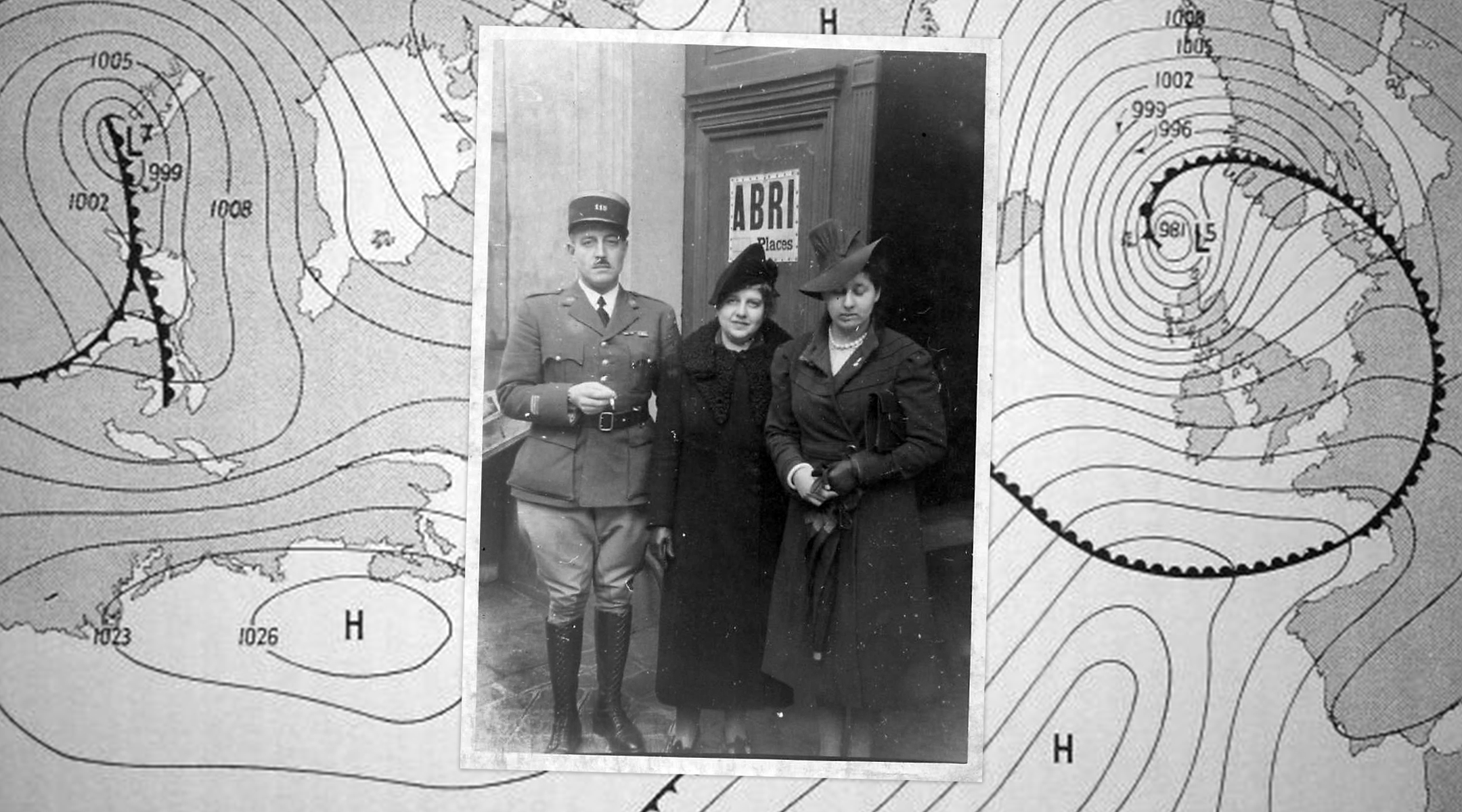Thursday marks the 80th anniversary of D-Day, the Allied landings along the Normandy coast during World War II. Most Americans are somewhat aware of D-Day and to some it may even stand out as a pivotal moment in the history of Western civilization. To me, the anniversary of D-Day is highly personal.
Were it not for the success of D-Day, I would never have existed. Therefore, I celebrate each June 6 as a kind of pre-birthday.
My mother’s Jewish family had lived in France for several hundred years and in Paris for three-quarters of a century when the German army marched into Paris in the spring of 1940. The family had a pleasant middle-class existence in the French capital. Fiercely patriotic, members of the family had served in the French army since the time of Napoleon and my grandfather’s twin brother had made the ultimate sacrifice during the Battle of Verdun in World War I.
At the time of the French Revolution, 150 years earlier, French Jews had achieved full French civil rights, from which my mother’s family amply benefited. With the arrival of the Nazis, who received the support of certain French collaborators, all of that came to an end. Beginning in 1941, the Nazi occupiers with the full cooperation of the puppet Vichy government began a process of segregating, isolating and persecuting Jews living in France.
By the fall of 1941, Jews were required to display a yellow star on their outer garments and were subjected to increasing restrictions. In 1942, deportations to the death camps in Poland began and steadily accelerated.
But on June 6, 1944, under the command of General Dwight Eisenhower, hundreds of thousands of American, British, Canadian and free French soldiers stormed the beaches of Normandy, which were heavily defended by German fortifications. There were over 10,000 casualties among the young men who landed on the beaches that day. Nearly 5,000 people, more than half Americans, gave their lives, dying in the effort to create a beachhead from which France would be freed from the grip of German occupation.
Most of the soldiers who were killed were in their late teens or early twenties. They came from every corner of America and of every background. In the face of imminent death, courage was everywhere in abundance.
The violence of D-Day was the beginning of a military campaign that would take months and cost the Allies hundreds of thousands of casualties but which brought a measure of hope to those targeted for extermination. Still, it would take weeks for Eisenhower’s army to break out of the beachhead and steadily liberate France.
During much of the German occupation, my family had benefited from relative immunity from deportations because of their long-standing residency in France and my grandfather’s extensive military record. Although subjected to all of the humiliations that were imposed on Jews, they had not been specifically targeted for death because so many foreign-born Jews were available to assuage the Nazis’ unrelenting desire to murder Jews.
But by the summer of 1944, attention was rapidly turning to the previously immune native French Jews. My family, knowing that they were now in danger of deportation, determined that they had to go into hiding. They accumulated food and supplies and stacked them in the apartment above theirs, an apartment that had been vacated by people who had decided it was dangerous for them to remain in Paris and had given my grandparents the keys to their apartment “just in case.”
My grandparents then locked up their own apartment and went upstairs. They had to remain quiet at all times, which meant even avoiding the use of toilets. My mother noted that, after a few days, with food running low, hiding became profoundly uncomfortable and was not likely to provide protection for much longer.
But, in the nick of time, beginning Aug. 24 the conquering Allied armies entered and liberated Paris from Nazi occupation. The prospect of deportation and death ended.
My family’s survival was the direct result of the successful Allied landing on D-Day. Of some 340,000 Jews living in France in 1940, more than 75,000 were deported to death camps, where about 72,500 were murdered. Of that number, a majority were Parisian Jews.
Without the ultimate sacrifice of thousands of Americans and the liberation that those soldiers made possible, my grandparents, my mother and my uncle would likely have been deported to Auschwitz and certain death. I would never have had the opportunity to exist and to benefit from all of the good fortune that those who gave up their lives at Omaha Beach and the other beaches were denied.
For me, D-Day is a day of personal contemplation and of profound thanks to those who sacrificed that I might live. The young soldiers who suffered and died on D-Day and in the days following ultimately led to the unconditional surrender of Nazi Germany. Those soldiers truly made our world a better place. June 6 is an important day of commemoration and, for me, a day of immense gratitude to the brave American soldiers who gave hope and life to my family.
JTA has documented Jewish history in real-time for over a century. Keep our journalism strong by joining us in supporting independent, award-winning reporting.







